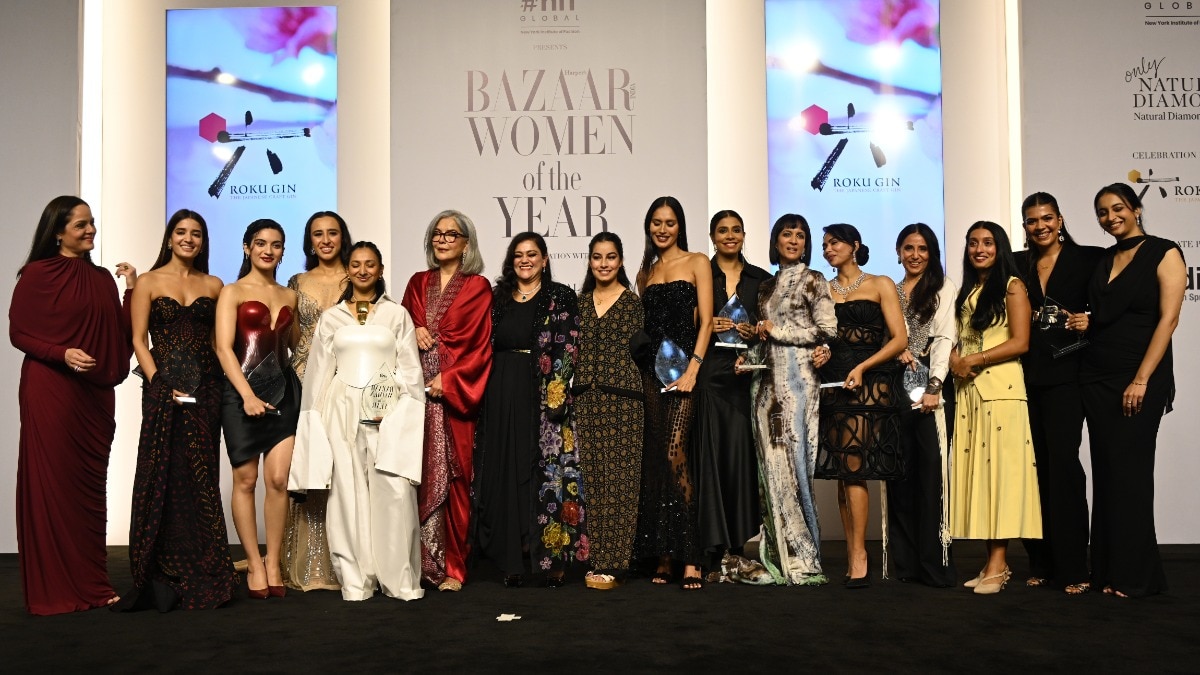#BazaarWomenInFocus: The many notes of sitar virtuoso Anoushka Shankar
The Harper's Bazaar Musician of the Year 2025, sitar virtuoso Anoushka Shankar, continues to prove that music, at its best, transcends culture, language, and time.


Few artists embody evolution as well as Anoushka Shankar. Harper’s Bazaar hosted its annual Women of the Year 2025 awards on October 25 at Trident hotel in Bandra Kurla Complex, Mumbai, where Shankar received the Musician Award—a moment that felt both glorious and well-deserved. Dressed in her signature elegance, sitar in hand or not, she remains an artist who bridges worlds: the timeless and the contemporary, the intimate and the universal.
A sitar prodigy trained under her father, the legendary Pandit Ravi Shankar, Shankar gave her first public performance at the age of 13 and released her debut album Anoushka at just 17. Since then, she has carved out a musical identity entirely her own. Across her seven studio albums, she has pushed the boundaries of Indian classical music, weaving in elements of flamenco, electronica, jazz, and Western orchestration.
Her landmark albums, Rise, Traveller, Traces of You, and Love Letters, speak to her fearless experimentation and emotional honesty. Through each project, Shankar has explored themes of identity, migration, womanhood, and loss, using her sitar not only as an instrument of sound but also as a medium of storytelling. Her music often reflects the times we live in: empathetic, bold, and deeply introspective.
With 11 Grammy nominations to date, Shankar has also made history as the first Indian musician to perform live at the Grammy Awards. Her collaborations span a dazzling range—Sting, Norah Jones, Herbie Hancock, MIA, Nitin Sawhney, Karsh Kale, and more—each partnership expanding her global soundscape. In 2024, she was awarded an Honorary Doctor of Music degree by Oxford University for her “outstanding contributions to world music and cultural exchange,” further cementing her influence as one of the most important voices in contemporary global music.
Beyond her music, Shankar has been a passionate advocate for gender equality and social justice, using her platform to support refugee rights, mental health awareness, and survivors of sexual violence. In her recent projects, she’s also composed for film and television, lending her signature sound to narratives that need tenderness and truth.
When she took the stage at Bazaar Women of the Year 2025, her acceptance speech was laced with humility and warmth:
“Thank you so much to Harper’s Bazaar and everyone involved in this for my award. I think art is a funny category to get awards in because it’s not subjective, it’s not a race, it’s not something where we can say, "This is better," but awards feel really good, and they do provide some inspiration or some incentive to keep going and to keep doing what we do. I am really grateful for this, and I hope to keep going and making more music for you all. Thank you.”
As she continues to tour the world, scoring for films, and composing new works that blur boundaries, Shankar remains one of the rare musicians whose artistry feels timeless. The award honours not just her body of work, but her spirit: the kind that reminds us that the truest music is the kind that keeps evolving.
Also read: Harper’s Bazaar Women of the Year Awards 2025: The game-changing winners you need to know
Also read: Kalli Purie’s Heartfelt words on strength, love, and serendipity at Bazaar’s Women of the Year 2025










